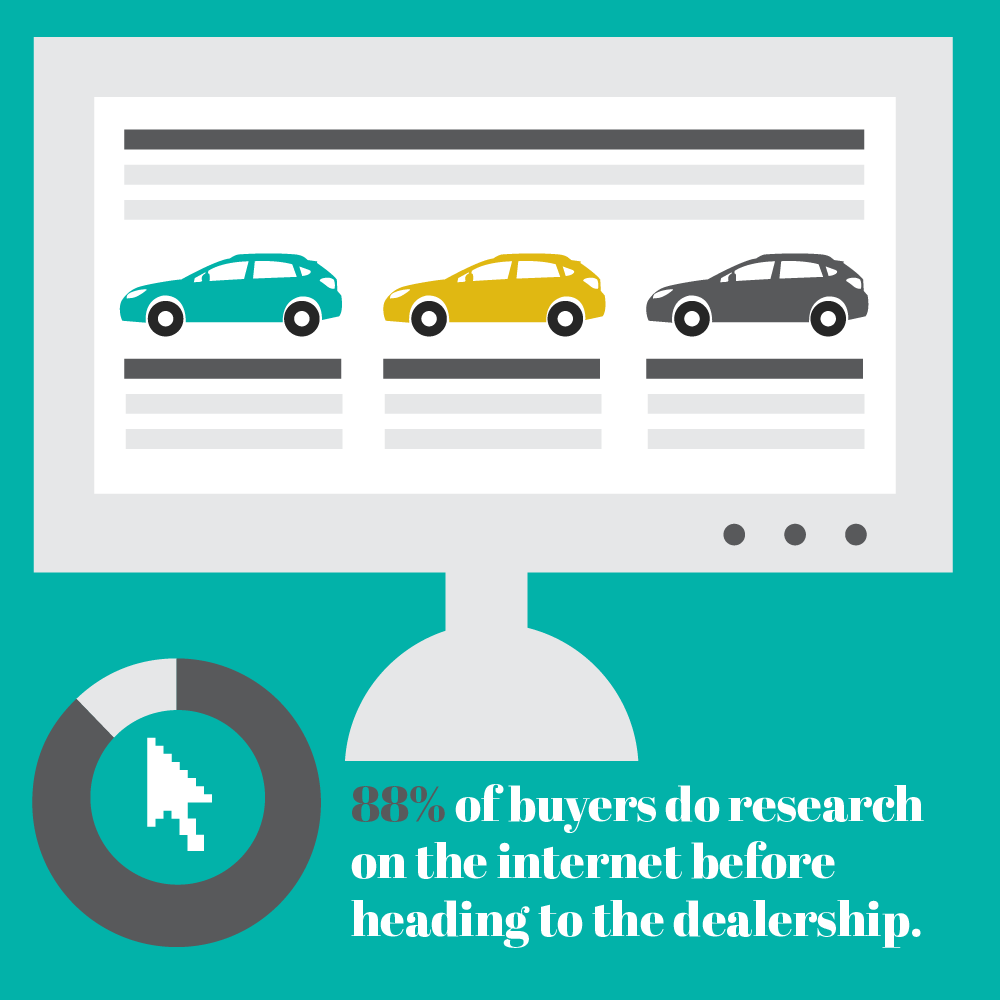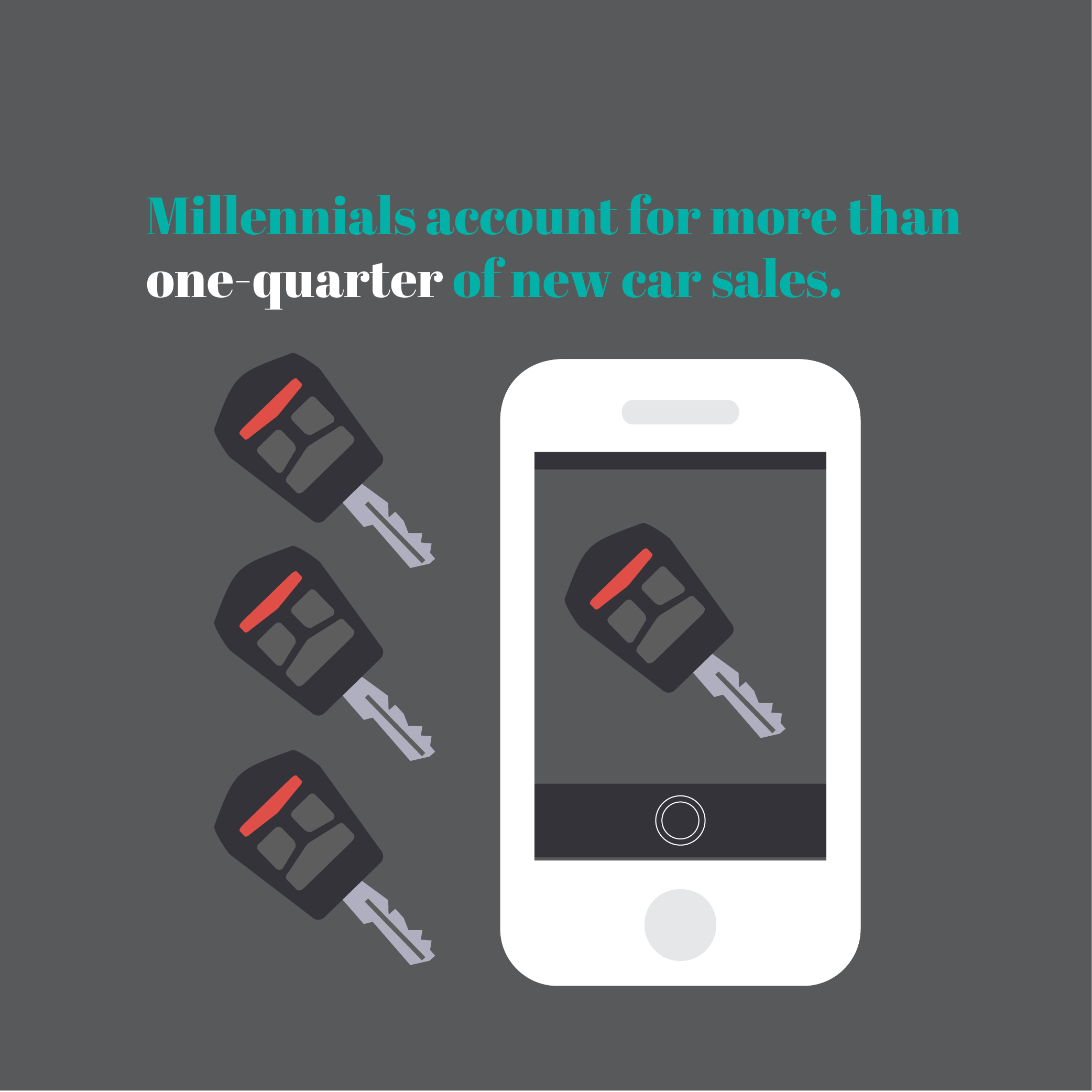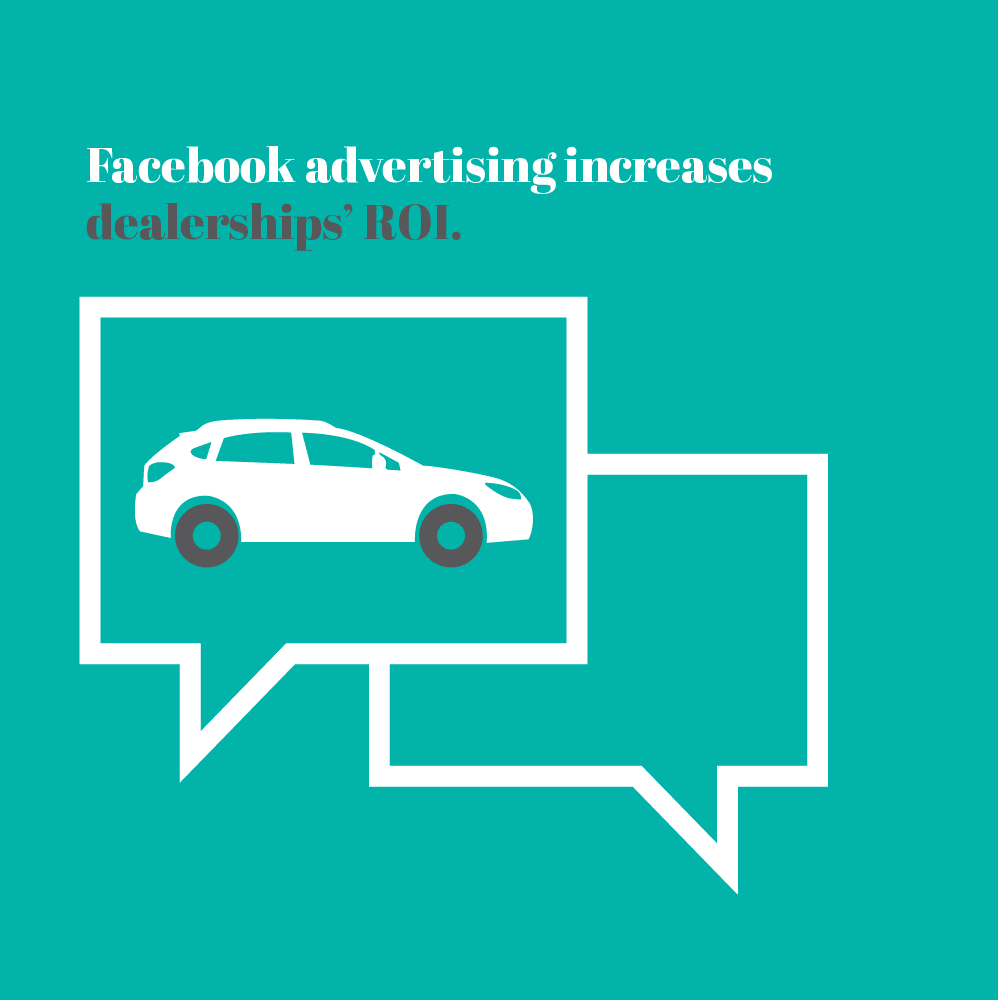Auto dealerships present specific, unique marketing challenges that can be difficult to overcome in efforts to gain consumer trust and drive up sales. The process of buying a car is a subject on which almost everyone seems to have advice, and much of it is focused on how to work around predatory salespeople and shady lending practices. Of course, not all dealerships live up to their negative image, and many are, in fact, integral fixtures in the communities they serve. Still, it’s necessary to break the barriers that exist between customers and car dealerships to create more effective marketing strategies, and this begins by understanding the mindset of the average car buyer. Here is a rundown of some key car buying statistics to build a clearer picture of how customers approach the car buying process.
The majority of pre-purchase research takes place online.
88% of buyers do research on the internet before heading to the dealership, according to 2016 Car Buyer Journey. This research might include not only information about various makes and models, but also information about local dealers where a purchase might be made. Therefore, it pays off to provide up-to-date content to keep your dealership high in the ranks while giving customers the information they need to make purchases they can feel good about.
Most people won’t go to the dealership alone.
Lab42 reports that nearly all car buyers—91%—will bring someone along to the dealership when making a purchase, and 81% say that they are less likely to buy when the salesperson is aggressive. However, people also come to the dealership with a good deal of uncertainty about what type of car they want to purchase and when the actual purchase will be made. In fact, about 52% of buyers still do not know which make or model they will buy when they arrive at the dealership. That means that salespeople must be skilled in the art of gently persuading and guiding potential buyers without becoming pushy or aggressive.
Millennials are a major market for new car sales.
There is a growing misconception that millennials are avoiding conventional purchases, including cars and homes, but this is not entirely true. Though millennials are changing the way that many goods are purchased—and many are not currently homeowners—they are still buying cars. In fact, Bloomberg View reported that millennials represented about one-quarter of new car sales in the U.S. in the year 2014.
Auto dealerships may struggle to find footing in new marketing strategies, so they tend to stick to what they know works. However, these strategies may have fewer rewards when it comes to their return on investment. According to 9 Clouds, Facebook advertising increases dealerships’ ROI, likely because it can allow dealerships to increase consumer engagement and build their trust prior to such a major purchase.
The season matters when it comes to auto marketing.
It’s no secret that winter is hard on cars, so many buyers will flock to the dealership in the spring to replace a winter-damaged vehicle. In addition, it’s simply nicer to walk around the dealership when the weather is pleasantly warm and sunny. This means that springtime marketing efforts might be more geared toward individuals who are ready to make a purchase. Conversely, winter car buying tends to be driven by the promise of a good deal, since buyers expect dealerships to do more to draw them in when it isn’t the peak of the buying season.
To position your marketing materials to customers in the right mindset for a vehicle purchase, look to the insight of the team here at Pennington Creative. We’ve done our research to get to know your customers, so let us show you how we can drive up your ad engagement for this audience.







